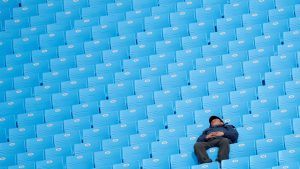Ed Yong in The Atlantic:
 In 1920, the night before Easter Sunday, Otto Loewi woke up, seemingly possessed of an important idea. He wrote it down on a piece of paper and promptly returned to sleep. When he reawakened, he found that his scribbles were illegible. But fortunately, the next night, the idea returned. It was the design of a simple experiment that eventually proved something Loewi had long hypothesized: Nerve cells communicate by exchanging chemicals, or neurotransmitters. The confirmation of that idea earned him a Nobel Prize in medicine in 1936.
In 1920, the night before Easter Sunday, Otto Loewi woke up, seemingly possessed of an important idea. He wrote it down on a piece of paper and promptly returned to sleep. When he reawakened, he found that his scribbles were illegible. But fortunately, the next night, the idea returned. It was the design of a simple experiment that eventually proved something Loewi had long hypothesized: Nerve cells communicate by exchanging chemicals, or neurotransmitters. The confirmation of that idea earned him a Nobel Prize in medicine in 1936.
Almost a century later after Loewi’s fateful snoozes, many experiments have shown that sleep promotes creative problem-solving. Now, Penny Lewis from Cardiff University and two of her colleagues have collated and combined those discoveries into a new theory that explains why sleep and creativity are linked. Specifically, their idea explains how the two main phases of sleep—REM and non-REM—work together to help us find unrecognized links between what we already know, and discover out-of-the-box solutions to vexing problems.
More here.
